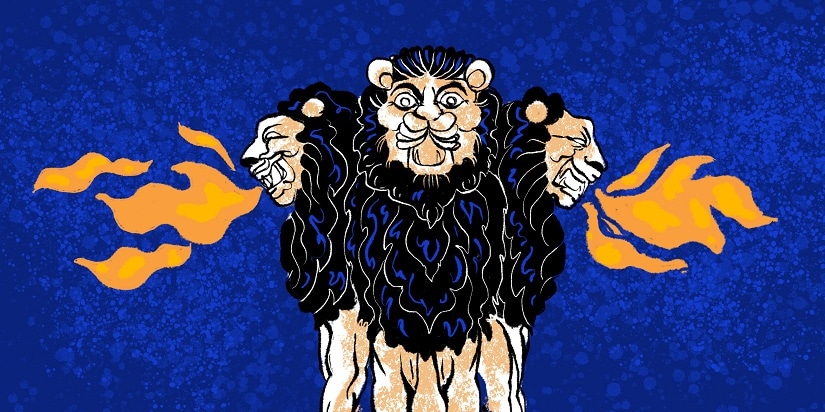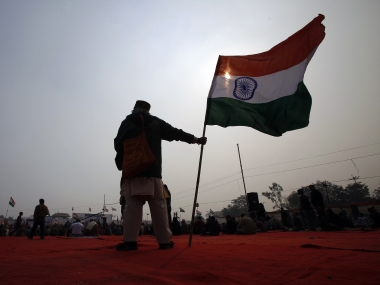This essay is part of Firstpost’s ‘India and the Indian’ series, which examines the renewed idea of nationalism in vogue today, and what it means. Read more from this series . *** The 2019 General Elections will go down as a landmark election in Indian history, as it marked the first time since 1962 that an incumbent Prime Minister led his party to a clear majority after serving a full five year term in office. But the election was particularly notable for another reason. The campaign leading up to the polls almost played out as a referendum on the “idea of India”. Is India a civilizational state with a coherent national culture that is inextricably linked to religion? Or is India merely a heterogeneous union of disparate provinces held together by the legacy of the British Raj, and a robust Constitution? The liberal argument on the “idea of India” has always emphasised the period from 1947-1950, and lionised the “Founding Fathers” for having bequeathed us institutions and a system of government that holds the seemingly antagonistic cultures together. It is a desacralised view where “patriotism” at best implies loyalty to the Constitution and the law of the land. Nothing more. The Hindu nationalist argument, in contrast, transcends mere constitutional patriotism. This view, with its roots in 19th century Hindu renaissance, is keen to personify the Indian nation as “Bharat Mata”. It is not necessarily anti-Muslim. But nevertheless acknowledges the “Hindu” glue holding India together. [caption id=“attachment_6823971” align=“alignnone” width=“825”]  Illustration © Satwick Gade for Firstpost[/caption] With the maturation of Indian democracy and the strengthening of a “common” national culture aided by a common market, mass media and labour mobility, the “nationalist” narrative is increasingly more persuasive with large sections of Indian society. The Congress Party, in contrast, with its constant tendency to hark back to the “Founders” and Mr Jawaharlal Nehru in particular, is viewed as a body of elites who are removed from the pulse of the nation. This might be a good occasion to reflect on the merits of the “Hindu” nationalist narrative. Why is it a more persuasive narrative than the rhetoric of the Congress Party that is centred on the Founding Fathers and the liberal Constitution? Also while we are on this, it is worthwhile to ask ourselves the related question – What makes India tick? Why is it so incredibly stable and durable notwithstanding its numerous languages, ethnicities and sub-cultures, while countries with seemingly far less heterogeneity struggle to cohere as nations elsewhere? Why doesn’t India break up into a dozen separate nations? To my mind, there are two complementary reasons, closely linked to each other: — The role of Hinduism as a civilizational glue — The role of caste as a counter to regional nationalisms Hinduism as a civilizational glue Hinduism can be regarded as India’s “national” religion. It has a “national” character unlike say Christianity in Europe. To appreciate this statement, let’s reflect a bit on Europe and Christianity. A united “Christendom” as a single political bloc has been a non-starter in Europe since the decline of the Holy Roman Empire and the Protestant Reformation. This is because post-Reformation Christianity has traditionally emphasised “faith” and a personal relationship with God, and de-emphasised the communal aspect to religion. Christianity’s impact on day-to-day European life and culture has been very tenuous, especially after the Reformation and the increasing secularisation of life in Europe. Hinduism, in contrast, transcends personal faith and even theological beliefs. A Hindu’s ways of living, his philosophical outlook, and his notions of right and wrong, cannot be disentangled from his “religion”. Several aspects of mass culture including cultural taboos, the food that people eat, the attitudes they nurse towards death, among other things, are deeply influenced by the great Hindu tradition, and this cements inter-provincial unity to a far greater extent in India than can be imagined by external observers unacquainted with the nature of the Hindu religion. Caste – A counter-point to regional chauvinisms Besides the nature of Hinduism, the other major factor that holds India together and prevents the rise of regional nationalisms is the C-word – Caste. Caste represents a unique non-geographic axis of diversity, which makes the geographic axis less critical Again, let’s examine Europe as a parallel. In Europe, the key source of diversity is geography. While in India, there is considerable diversity within each geography (in fact within each village) on account of Caste. One reason why Serbia, a country of seven million people, is a nation, while Karnataka, a province of 70 million is not, is because of this underrated factor. In Karnataka, the Kannada identity never gets too strong as it is up against the Gowda identity, the Brahmin identity, the Lingayat identity. These non-geographic sources of diversity are a counter to regional chauvinisms and lingual extremism. One can think of Caste as a “vertical” counter to the “horizontal” fault-lines of language and geography. The Hindu nationalist narrative clearly internalises both these aspects of India, in sharp contrast to the Left-liberal thinking that tends to under-estimate India’s cultural robustness and over-emphasise the “horizontal” fault-lines One does acknowledge that large parts of the left-liberal establishment do obsess on caste divides, but they see it mainly as a source of division and strife. What’s not acknowledged is that this “vertical” source of diversity is keeping in check the regional nationalisms that would have otherwise broken India. The road ahead While the “nationalist” narrative is definitely in the ascendant, one hopes that this triumph of “nationalist” politics culminates in a broad political consensus on the idea of India as a “civilizational nation” as opposed to a constitutional artifact. A nation that guarantees freedom of religion to one and all, but is nevertheless rooted in the Hindu way of life – a way of life that unites the numerous sub-cultures of India in a single civilizational whole, but not at the expense of the inherent diversity of the land. Such a consensus is important because it will hopefully put an end to the invocation of “nationalism” as a political issue at the hustings. When the politics of the land revolves around “nationalism”, or worse, around religious identity (Hindus vs rest), the nation suffers, and so does the intellectual life of the country. What we want in Indian politics is a mature liberal vs conservative divide based on broad philosophical principles, as opposed to a divide that is around competing ideas of India. One hopes that the Modi triumph of 2019 results in a consensus on this old yet “new” “idea of India” across the political spectrum. Such a settlement can trigger the maturation of Indian politics, somewhat akin to the maturation of English politics and the English nation after the 1688 “Glorious” Revolution which created a consensus in Britain in favour of a permanent Protestant monarchy and Parliamentary rule, enabling political discourse in 18th and 19th centuries to debate more mundane, and secular matters instead of expending energies on “ideas of Britain”. Let’s conclude on that sanguine note. Shrikanth Krishnamachary is a data scientist in financial services based in New York. He tweets @shrikanth_krish
The Hindu nationalist argument transcends mere constitutional patriotism. This view, with its roots in 19th century Hindu renaissance, is keen to personify the Indian nation as “Bharat Mata”.
Advertisement
End of Article


)

)
)
)
)
)
)
)
)



